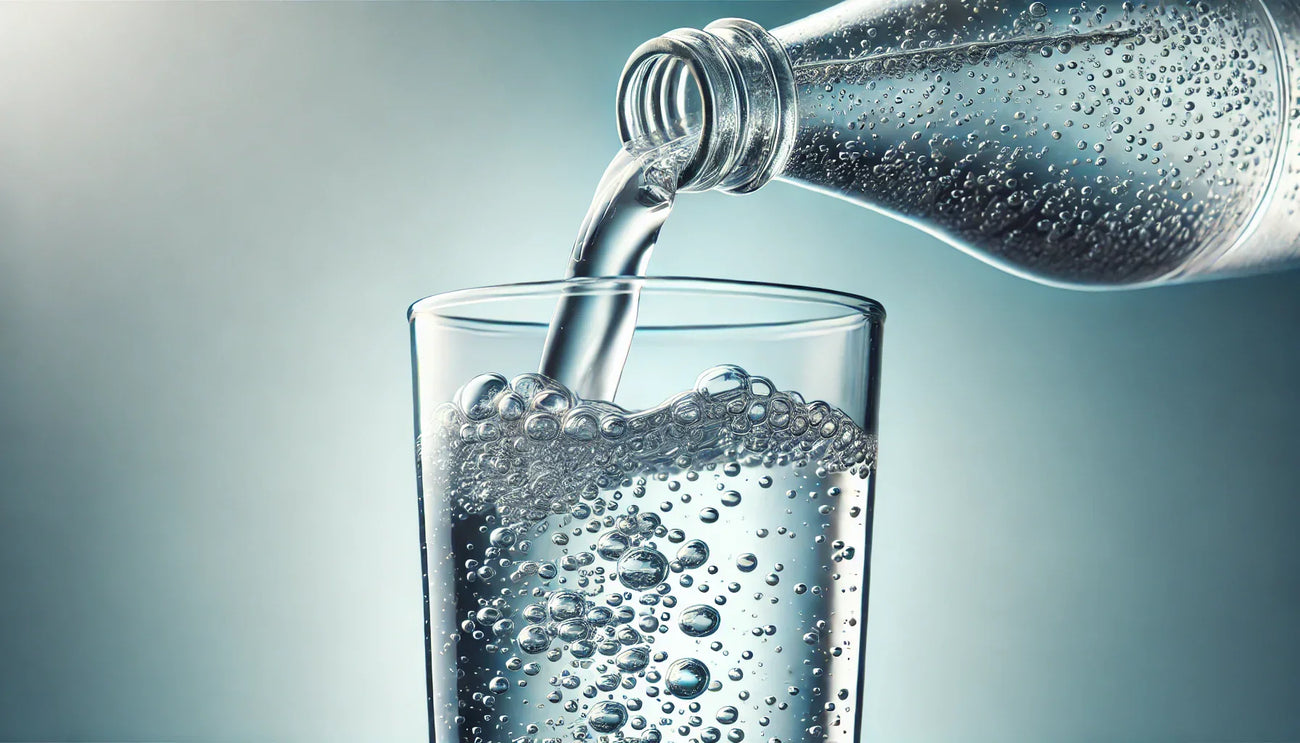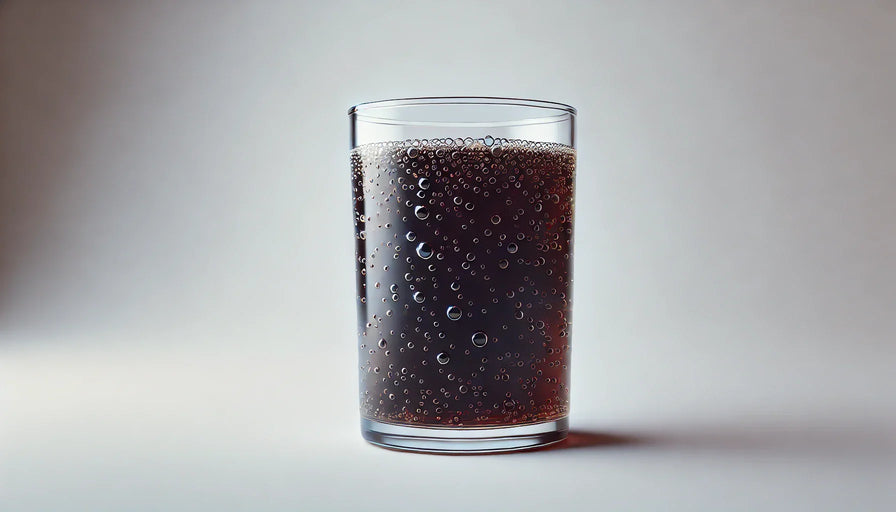
Is Carbonated Water Bad for Your Kidneys?

Is carbonated water bad for your kidneys?
Carbonated water is generally considered safe for your kidneys when consumed in moderation. Unlike sugary sodas or those containing additives, plain carbonated water does not lead to kidney stones or other kidney issues.
Understanding the impact of various beverages on kidney health is essential for maintaining overall well-being. Knowing how much regular water to drink per day is just as important as knowing how much mineral water is safe to consume daily.
As the popularity of carbonated water continues to rise, many individuals are left wondering whether this bubbly alternative could pose any risks to their kidneys, even with its array of potential health benefits.
In this article, we will explore the relationship between carbonated water consumption and kidney function, dispelling myths and highlighting the benefits of this refreshing drink.
Table of contents
Is Topo Chico bad for your kidneys?
Topo Chico is generally safe for individuals with healthy kidney function when consumed in moderation. Topo Chico is a popular mineral water brand, containing naturally occurring minerals and carbonation.
The minerals found in Topo Chico, such as magnesium and calcium, can even contribute positively to hydration and mineral balance in the body.
However, those with pre-existing kidney conditions should approach Topo Chico with caution. The additional minerals may pose a risk for individuals on a sodium-restricted diet or those whose kidneys struggle to filter excess minerals effectively.
It’s essential for individuals to evaluate their unique health circumstances and consider factors such as existing kidney conditions, dietary restrictions, and overall health.
Consulting with a healthcare provider can provide valuable insights and tailored recommendations regarding the consumption of Topo Chico or similar carbonated mineral waters.

Why is carbonated water bad for your kidneys?
While carbonated water is not inherently bad for your kidneys, there are specific circumstances where it may pose risks, particularly when consumed in excessive amounts.
For individuals with certain pre-existing conditions, like kidney disease or specific metabolic disorders, the high levels of carbonation could lead to problems such as increased gas production and bloating, which may aggravate these conditions.
Flavored carbonated waters that contain added sugars, sodium, or other additives can contribute to overall dietary excesses, potentially leading to health issues like increased blood pressure or weight gain, indirectly affecting kidney function over time.
Plain carbonated water can actually aid in weight loss and overall be considered a good beverage for you to drink regularly. It's also a great alternative for those who have diabetes!
Thus, as with many foods and beverages, moderation is key to ensuring it remains a safe and healthy choice.
Related read: Can You be Allergic to Carbonation?

Is coffee bad for your kidneys?
Coffee, when consumed in moderation, is generally safe for most individuals, including those with healthy kidney function.
However, excessive caffeine intake can lead to increased blood pressure and may enhance the risk of kidney stones in susceptible individuals. Just like carbonated water, moderation is crucial.
While carbonated water is typically benign for kidney health, the same principle applies to coffee. Those with pre-existing kidney issues should be cautious with both beverages, as too much caffeine and carbonation can both contribute to discomfort and exacerbate existing conditions.
It’s important to consider individual health factors when deciding on the consumption of either drink and consulting a healthcare provider is advisable for personalized guidance.
Related read: Is Carbonation Bad for Ovaries?

What kind of drinks are bad for the kidneys?
Some common drinks that are considered bad for the kidneys include but are not limited to:
- Sugary drinks
- High-sodium beverages
- Caffeinated beverages
- Alcohol
- Fruit juices with high potassium
- Sports drinks
- Milk and dairy
The National Kidney Foundation estimates that around 15% of adults in the United States suffer from chronic kidney disease (CKD), which can impact the body's ability to process certain beverages.
Below is a comprehensive list of drinks typically regarded as harmful to kidney health:
1. Sugary drinks
Sugary drinks, including sodas and sweetened teas, can contribute to weight gain and increase the risk of developing conditions like diabetes, which in turn can have detrimental effects on kidney health.
The high sugar content can lead to elevated blood sugar levels, putting additional strain on the kidneys as they work to filter excess glucose from the bloodstream.
Additionally, the phosphoric acid found in many colas can harm kidney function when consumed in large quantities.
Related read: Is Soda Water Bad for You?
2. High-sodium beverages
High-sodium beverages, such as certain sports drinks and pre-packaged vegetable juices, can lead to an increased sodium intake that may strain kidney function.
For individuals with existing kidney issues, managing sodium is crucial, as excessive sodium can cause fluid retention and elevate blood pressure, further exacerbating kidney-related problems.
It is advisable to check labels and choose low-sodium alternatives whenever possible to protect kidney health.

3. Caffeinated beverages
Caffeinated beverages, such as coffee, certain teas, and energy drinks, may have mixed effects on kidney health.
While moderate consumption is typically safe for most people, excessive caffeine intake can lead to increased blood pressure and may pose a risk for kidney stones in susceptible individuals.
For those with existing kidney issues, it's essential to limit caffeine to prevent discomfort and further strain on the kidneys. Caffeine can act as a diuretic, increasing urination and potentially leading to dehydration, which can negatively impact kidney function over time.
4. Alcohol
Alcoholic beverages can pose various risks to kidney health, especially when consumed in excess. High alcohol consumption can lead to a range of health issues, including dehydration, increased blood pressure, and liver disease, all of which can ultimately affect the kidneys.
Certain alcoholic drinks, particularly sugary cocktails, and sweet wines, can contribute to weight gain and health complications that further strain kidney function.
5. Fruit juices with high potassium
Certain fruit juices, particularly those made from bananas, oranges, and avocados, are high in potassium. While potassium is an essential mineral for the body, excessive intake can be problematic, especially for individuals with compromised kidney function.
Healthy kidneys help regulate potassium levels, but when they're not functioning correctly, high potassium can lead to hyperkalemia, which is a dangerous condition that can affect heart rhythm and muscle function.

6. Sports drinks
Sports drinks are often marketed as healthy options for hydration and electrolyte replacement during intense physical activity. However, many contain high levels of sugar and sodium, which can be detrimental to kidney health.
Excessive consumption of these drinks can lead to increased thirst, which may encourage further consumption and contribute to potential health issues.
It's important to read labels and opt for low-sugar or sugar-free alternatives when possible, especially for individuals with pre-existing kidney conditions.
7. Milk and dairy
Milk and dairy products are typically rich in calcium and protein, which are important for a healthy diet. However, for individuals with kidney disease, the intake of dairy should be monitored closely.
These products can also contain significant amounts of potassium and phosphorus, which may be harmful when kidney function is impaired. High phosphorus levels can lead to bone disease and heart problems, while excessive potassium can cause serious heart rhythm issues.
Related read: Is Carbonation Bad for Your Bones?
Individuals with chronic kidney disease are often advised to limit dairy consumption to maintain a balanced intake of these minerals and protect overall health.
When considering beverage choices, moderation, and individual health circumstances play a vital role in maintaining kidney health. Consulting a healthcare provider is always recommended for personalized dietary guidance.
Related read: Is Carbonated Water Bad for Your Kidneys?

Summary
Maintaining kidney health involves being mindful of beverage choices and understanding how different drinks can impact overall well-being. Carbonated waters, especially when plain in flavor, should have no negative effect on the body's kidney health when consumed in moderation.
However, sugary drinks, high-sodium beverages, caffeinated drinks, and alcohol should be consumed with caution, especially for individuals with existing kidney issues.
By prioritizing hydration with kidney-friendly options and consulting healthcare providers for personalized advice, individuals can take proactive steps to support their kidney function and overall health.
Regular monitoring and adjustments to dietary habits can go a long way in ensuring a balanced and health-conscious approach to drinking.
Recommended reading

How to Give Back During Thanksgiving 2025
Key takeaways Thanksgiving is a time to express gratitude and share with those in need. From volunteering at local shelters to donating food and essentials, there are numerous ways to give back to...

What Does Carbonation Do to Your Body?
What does carbonation do to your body? Carbonation alone typically has minimal effects; however, it can cause bloating and discomfort for some, and it may worsen acid reflux due to carbon dioxide ...

What Are the Health Benefits of Sparkling Water?
Summary Sparkling water isn't just a refreshing drink—it comes with surprising health benefits too. From aiding digestion to improving hydration, discover how sparkling water can be a healthy addi...